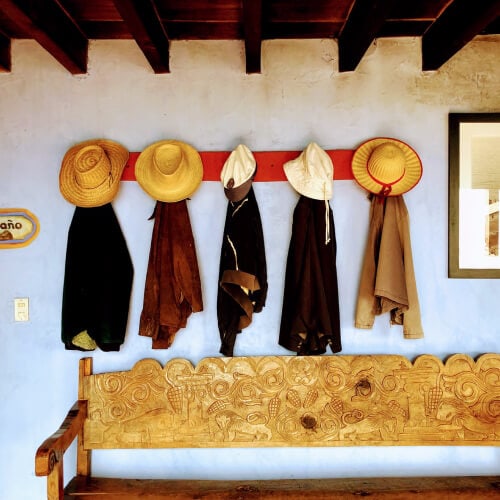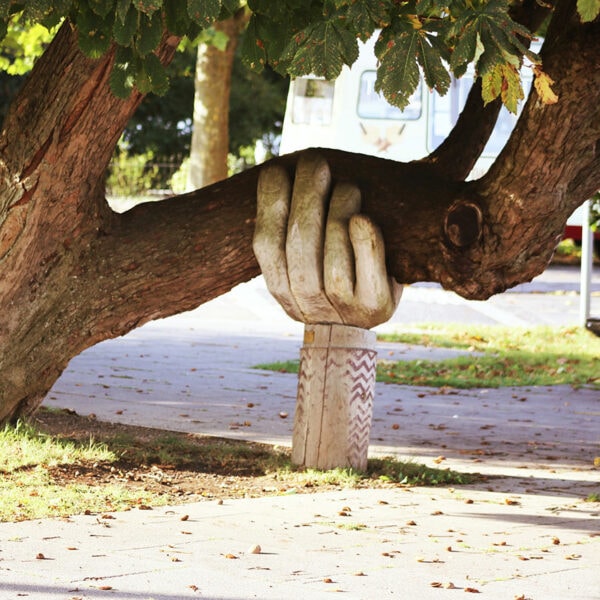
All Topics
Quick-jump to Topic category

Family offices: The innovation challenge
InnovationThe intersection of family offices and innovation is both complex and crucial, framing a narrative of potential, challenges, and societal impact. Simple Expert Kjartan Rist explores the growing influence of family offices in the global market and their potential to shape the future of innovation across various industries.

Continuous improvement for boards: 7 best practices for family offices
GovernanceSimple Expert Christian Schiede offers insightful advice on leadership transitions in family businesses and seven best practices for family office boards to maintain operational excellence.

How Masttro’s family office origins continue to drive their vision
SoftwareWealthTech platform Masttro was established over 14 years ago, but even their family office users likely don’t know that the company’s two founders, Domingo Viesca and Javier M Gutierrez, previously worked together at a family office.

Bermuda's approach to privacy and asset protection for family offices
Discover the legal framework for privacy and asset protection in Bermuda. Learn how family offices can benefit from its robust laws and international compliance.

Why family offices shouldn't fear the future
ForesightIn this insight, Simple Expert Toby Usnik discusses why family offices should embrace artificial intelligence (AI) as a strategic ally, not a threat. In the midst of their fear of the unknown, he proposes a different perspective—one of optimism, opportunity, and the potential for extraordinary growth.

Challenges and opportunities for family offices serving musicians
Family offices, traditionally managing wealth for high-net-worth individuals, increasingly find themselves navigating this vibrant yet complex sector, especially when serving musicians and artists. This article explores the challenges and opportunities for family offices serving musicians

The impact of Florida's tax landscape on family offices
JurisdictionsKnown for its favourable tax regime, Florida offers significant advantages that can impact wealth preservation, growth, and succession planning. This article explores how Florida's tax environment affects family offices, highlighting key benefits and strategic considerations.

5 Emerging WealthTech innovations for family offices
WealthTechExplore the top five WealthTech innovations revolutionising wealth management for family offices. From AI-driven analytics to secure blockchain transactions, discover how these technologies can enhance your investment strategy and safeguard your assets.

A glimpse into five of India's largest family offices
JurisdictionsExplore the dynamics of wealth management in India through an in-depth look at five of the most influential family offices, understanding their strategies, influence, and impact on the Indian and global financial landscape.

How US sporting celebrities manage their family offices
StrategyThe transition from high-earning athletes to savvy wealth managers is a critical journey, often mired in complexities unique to their career paths. This article delves into the nuances of how US sporting celebrities structure their family offices, ensuring financial growth, legal compliance, and effective brand management.

Celebrities who have embraced family offices
TrendsIn the intricate world of wealth management, the concept of a family office has become a pivotal strategy for many, including some of the most renowned celebrities. Discover how renowned celebrities like Oprah, Richard Branson, and Jay-Z are navigating the complexities of wealth management through their family offices.

Exploring digital family office solutions for UHNWIs
DigitalWhile it can be the ultimate goal, not all ultra-high net worth individuals (UHNWIs) are ready to set up a fully staffed traditional family office. This insight explores the growing number of digital family offices and the tailored solutions they offer to UHNWIs.

Health insurance considerations for family office leaders
Health & LongevityDiscover the most effective global health insurance options for ultra-high-net-worth individuals (UHNWIs) and family offices. This article provides valuable insights and best practices for family office CEOs and COOs seeking comprehensive global health insurance coverage.

Empowering impact: Channeling philanthropic capital into for-profit initiatives
PhilanthropyDonor Advised Funds (DAFs) have emerged as a strategic tool in this new philanthropic landscape, offering a flexible and innovative approach to stewarding capital for social and financial returns. In this insight, Simple Expert Maggie Spicer discusses the benefits of channelling philanthropic capital into for-profit initiatives through DAFs.

Trustee-beneficiary dynamics: How to handle the headwinds of digital assets
Digital AssetsFamily office trustees face a new challenge as the younger generations increasingly seek exposure to digital assets and cryptocurrencies. This insight shares a comprehensive checklist of ten guidelines to help them in their approach to this rapidly evolving sector.

Unleashing family office insights with Power BI
SoftwareFamily offices prepare reports on a regular basis so families can make informed decisions about their assets. The problem with traditional reporting is that it is rigid, data-heavy, and needs more context. This insight explores how Power BI reporting solutions can meet the specific needs of family offices and their clients.

How family offices can access AI through venture capital
Venture CapitalSimple Expert Kjartan Rist discusses how family offices can leverage venture capital to position themselves at the forefront of the AI revolution.

How Nordic family office WealthTech differs from the rest
WealthTechThis insight delves into conversations with four leading WealthTech providers in the Nordic region to explore what sets them apart from their competitors and what the future holds for the family office industry in the area.

Digital assets: A brief update for family offices
Digital AssetsThis insight delves into what family offices need to know about digital assets and offers valuable resources to explore.

Davos 2024: Four focus areas for family offices to consider
Impact StrategyThis insight focuses on what family offices can learn from this year's Davos discussions to position themselves for the future.

Building lasting family legacies: The role of values and social fitness
GovernanceSimple Expert, Alex Kirby breaks down social fitness, the importance of values and advises how family offices can integrate these services.

Holistic wealth management software for the modern family office
SoftwareNot so long ago, family offices could manage their investments on Excel spreadsheets. However, the complexity of assets necessitates a more holistic approach. Simple discussed this need to digitise with Radomir Mastalerz, the CEO of WealthArc.

How family offices can maximise their impact in 2024 and beyond
ImpactLearn how modern family offices can enhance their impact by integrating sustainable investments, innovative philanthropy, and intergenerational collaboration.

A synergistic future for family offices and venture capital
Venture CapitalThe investment landscape has changed due to the global economic downturn and evolving market dynamics, particularly in the way family offices and venture capital sectors interact. Simple expert, Kjartan Rist, shares his insights on the synergies between these two worlds.

Why estate management is a key aspect of holistic wealth management
Real EstateProviding estate management support can ease some of the family's most pressing frustrations and increase their overall well-being. This insight discusses holistic wealth management and effective estate management. It also suggests how family offices can bridge the gap between financial and non-financial aspects of wealth management by partnering with specialised service providers.

The benefits of global health insurance for family offices
Health & LongevityFamily offices face many challenges with traditional health insurance. This insight explores the unique challenges that family offices face with health insurance and how the right partner can help streamline the complex healthcare needs of their clients.

Family Offices in Australia
JurisdictionsAustralia's relatively secretive family offices have been experiencing significant growth over the past decade. This insight lists at some of the country's most prominent ones.

The importance of trustee succession in wealth transfer planning
Next GenerationWhether choosing individual or corporate trustees, learn how trustee succession planning with a focus on competency, continuity, and managing complexity is essential for preserving and passing on family assets across generations.

Bill pay software for family offices
SoftwareWriting, mailing, and processing paper checks can be time-consuming. Worst of all, checks can get lost in the mail or even stolen. Not only are they vulnerable to fraud, but there is also a high risk of adding an extra zero or misplacing a comma. This article explores the benefits of using bill payment software for family offices to mitigate risks and simplify accounting processes.

Corporate Transparency Act and BOI reporting for family offices
OperationsExplore the impact of the Corporate Transparency Act on family offices. Learn key definitions, historical context, and compliance requirements as this landmark legislation ushers in a new era of accountability and transparency.

An introduction to family office security
Cyber SecurityFrom cyber threats to physical asset protection, learn how family offices can mitigate risks through in-house measures and collaborations with expert service providers.

Exploring the rise of family office health insurance providers
Health & LongevityFamily offices are increasingly turning towards focused health insurance provider to better manage the health needs of their clients. This insight dives into the options available for high-net-worth individuals and families and explores the type of services available to family offices.

New family office technology: The flourishing tech ecosystem for family offices
DigitalOver the last five years, Simple's annual family office software review found that the number of service providers continues to rise. This insight explores growth drivers, legacy players, new innovators, and offers guidance on partnering with software providers for family offices.

Harmonising wealth and purpose: Why embark on an impact optimisation journey?
ImpactThere are fundamental shifts afoot in the realm of high finance. Simple Expert, Rory Tews addresses this shift and the implications for wealth owners into the future.

The largest family offices in the UAE
JurisdictionsFrom a desert landscape to a thriving metropolis in just a few decades, the UAE has transformed into a land of opportunities for family offices. Our latest insight explores the UAE's family office landscape, discusses current trends, and highlights well-established family offices in the region.

What family offices should know about alternative data aggregation
DigitalFamily offices struggle with managing assets across different locations and institutions. This article focuses on data aggregation challenges for family offices and how software can help streamline the process.

What family offices should know about portfolio management systems
InvestmentsPortfolio management is a crucial but time-consuming task for family offices. This article discusses its significance and explores how software can improve efficiency and reduce workload so family offices have more time to focus on their investment strategy and vision.

Strengthening family office cybersecurity: Key considerations for family offices looking to protect themselves against cyber threats
Cyber SecurityMany family offices tend to underinvest in cybersecurity. Yet, hackers are becoming increasingly sophisticated, posing potential financial loss and damage to their reputations. This article stresses the significance of cybersecurity for family offices and suggests ways to enhance it.

Want to try venture investing? It isn’t as easy as you might think
Venture CapitalVenture investing might seem like a straightforward way of achieving bumper returns. But there is more to it than some family offices realise, demanding the right balance of skills, experience, and resources.

CRM for family offices: The next generation of family office communication
Cyber SecurityIn family office management, the role of Customer Relationship Management (CRM) software has evolved significantly. Traditional CRM systems have paved the way for a new breed of software tailored specifically for family offices. This insight explores how next-gen CRM solutions go beyond simple contact management, transforming how family offices manage relationships, harness data, and optimise operational efficiency.

Lifestyle concierge services for family offices
Luxury & LifestyleAs the world evolves, so do the expectations of high-net-worth individuals and affluent families. To meet these changing demands, family office concierge services are elevating their game. Our insight focuses on family offices' lifestyle and concierge services and how they have expanded to keep up with the times.

Family capital and governance: Navigating wealth beyond rich lists
GovernanceWhile they might seem innocuous, 'rich lists' tend to be quite limited in gauging wealth. When it comes to good governance, family offices should rather look at the concept of family capital, a broader concept encompassing family well-being, decisions, knowledge, and health. By questioning the reliance on numbers, advisors will encourage a comprehensive view of wealth that includes family dynamics and governance in wealth management.

How family offices can evaluate their internal operations using industry benchmarked KPIs
SoftwareMany family offices struggle with their data management processes making it hard to make timely investment decisions. However, by implementing a KPI assessment tool that assists in identifying areas for improvement, family offices can stay ahead of the curve and safeguard their wealth.

Family office compensation: The complexities and considerations affecting staff salaries
OperationsAs the family office sector matures, staffing discussions continue to take centre stage. Deciding on staff compensation and salaries is complex and nuanced, amplified by a lack of industry benchmarks. Dynamics of single and multi-family setups, investment attributes, and investor roles further complicate the matter. Here, we explore the various aspects of family office compensation, breaking it down into four key sections.

Family office jobs: An introduction to key roles and career paths
OperationsGiven the private nature of the industry, there is a lack of standard job descriptions for family offices and along with managing family wealth, staff can also find themselves involved in everything from philanthropy to lifestyle and concierge services. In this insight, we explore the common roles you can find in a family office, as well as an overview of compensation and career resources.

Venture philanthropy for family offices
ImpactThis insight delves into how family offices can utilise venture philanthropy to align investments with philanthropic goals and positively impact society. By implementing traditional venture capital principles, they can invest in projects that empower communities and maximise social impact.

Family offices in Hong Kong: Understanding the factors driving growth
JurisdictionsDue to its advantageous location, robust financial infrastructure, and favourable economic policies, Hong Kong is championing the cause of the family office industry. With its continuous efforts, here is a look at how Hong Kong could quickly become a top spot for family offices looking to expand their wealth in the Asia-Pacific region.

Introduction to outsourcing for family offices
OperationsFrom accessing specialised expertise to improving efficiency and reducing costs, outsourcing offers numerous benefits to family offices. Read our latest insight to learn more about the functions they outsource, the benefits and drawbacks, and key considerations for a successful outsourcing experience.

The common IT challenges for family offices and how an IT partner can assist
Cyber SecurityAs family offices become more digitally-minded, the more vulnerable they become to digital attacks. This piece explores the ways in which family offices are exposed to cyber threats and some of the common challenges they face in the digital world, as well as how they can overcome them.

Why more family offices are going public: Examining the advantages and trends
Brand & designAs younger generations join family offices, there is a trend towards increased public presence and direct investing. Reasons include attracting clients, building credibility, networking, access to deals, and philanthropy.

Harnessing the potential of AI: Transforming family office operations for optimal efficiency
DigitalArtificial intelligence (AI) has the potential to transform family offices by automating tasks, optimising portfolio management, and enhancing risk management. While human expertise remains essential, integrating AI can propel family offices into a new era of success.

How digitalisation and automation affect family office compliance costs
Every management company will recognise the constant pressure to comply with regulations. And while this pressure is significant, oftentimes the financial and non-financial costs associated with compliance can be underestimated. This article outlines the true cost of compliance in wealth management, the factors that contribute to compliance costs, and the role of digitalisation and automation in reducing compliance costs and improving operational efficiency.

From aristocracy to modern firms: A look at the largest family offices in Europe
JurisdictionsEuropean family offices have a fascinating history dating back to the aristocratic and Renaissance eras. Despite challenging circumstances like the Russian-Ukraine war and inflationary pressures, European family offices remain resilient, adapting and evolving to safeguard their wealth and legacy.

Outsourcing chief investment officer for family offices
OperationsFamily offices encounter distinct investment challenges, and Outsourced Chief Investment Officers (OCIOs) are emerging as the solution. This insight discusses how OCIOs streamline investment activities, provide access to specialised expertise, and tailor investment strategies.

From possessions to experiences: Trends in high-net-worth lifestyle management
Luxury & LifestyleAs the next generation of family offices takes over, lifestyle managers are becoming aware of the increased desire for more meaningful experiences, rather than possessions.

Expanding professional networks through family office networking groups
LeadershipBy joining a reputable networking group, family offices can connect with their peers, service providers, and experts worldwide. They can also access the latest industry practices and technology developments to position themselves to take advantage of emerging opportunities.

Multi-family office vs wealth managers: What is the difference?
OperationsThe world of private wealth management can be extremely complex, with a multitude of different terms, services, and providers. While multi-family offices and wealth managers can offer critical services to help preserve and grow the wealth of the world's wealthiest families, the terms are often used interchangeably, leading to confusion among clients about what each actually does and which one is the right one to choose.

Tracking the changing landscape of family offices in Canada
JurisdictionsThe family office industry in Canada is experiencing growth as younger generations switch from family enterprises to more tech-driven and sophisticated business structures for managing family wealth. This insight explores why Canada is an attractive location for family offices.

Why should venture capital be at the heart of family office impact strategies
Venture CapitalImpact investing is a top priority for family offices, yet defining an approach that will ‘do good’ and drive returns is fraught with challenges. However, if you’re committed to venture investing, there’s a strong argument you’re already making an impact in several ways.

Unpacking investment fees: A guide for family offices
OperationsFamily offices and high-net-worth individuals often face significant challenges when it comes to understanding and managing investment fees, which can be complex and opaque. However, with the right software and expertise, family offices can take steps towards navigating investment costs more efficiently.

Managing multiple entities: Strategies for family office accounting success
SoftwareFamily offices often face difficulties when accounting for multiple entities. In this insight, we explore the benefits of employing accounting software to manage these entities successfully and discuss important factors to consider when choosing the best accounting software.

Exploring art as an investment for family offices
ArtArt investment has become a viable option for diversifying portfolios, with the potential for appreciation and hedging against economic downturns. However, it requires expertise and an understanding of the art market.

Why more family offices are looking to private equity for high returns and long-term success
Private EquityPrivate equity is becoming a more attractive option for family offices as public markets face macroeconomic headwinds. Driven by more than just profiteering, factors such as the family business and industry expertise play an important role in making alternative investment decisions.

Why Singapore is becoming the destination of choice for family offices
JurisdictionsSingapore has become one of the most popular destinations to establish a family office in Asia due to its clear and non-conflicting regulatory and legal framework, as well as its reputable judiciary system.

Navigating the risks and rewards of alternative investments for family offices
InvestmentsAs the global economy becomes increasingly complex and unpredictable, more and more high-net-worth families are turning to non-traditional investments in search of higher returns and greater diversification. From private equity and venture capital to real estate and cryptocurrency, alternative investments offer the potential for significant upside and the ability to hedge against market volatility.

Family office vs hedge fund: Understanding the differences and investment strategies
InvestmentsWith an increasing number of hedge funds converting to family offices over the past decade, it is more important than ever to understand the differences between the two. This article dives into what hedge funds are, how “hybrid” funds differ from full-fledged family offices, and how they fit into family offices’ portfolios.

Navigating privacy and publicity: A new approach to family office operations
CommunicationAs the family office industry continues to grow, more family offices are shifting away from privacy with more public profiles to compete for better investment deals, clients and talent. Here's how family offices are adopting marketing strategies that leverage digital platforms to build a strong public perception among the ultra-high-net-worth community.

Direct investing for family offices: Balancing risk and reward
InvestmentsDirect investing has seen tremendous growth over the past decade as family offices seek greater control over their investments. But what have been the drivers behind this trend and what are the pros and cons that direct investing brings to the table?

How family offices can improve digital security
Cyber SecurityAs more modern family offices digitise their operations, the more apparent the lack of cybersecurity infrastructure becomes. We explore the common issues and cover some of the measures that can be taken to address them.

The evolution of family office accounting - And the innovative service providers leading the charge
FinTechAs within any business including family offices, accounting and bill payment are two of the most critical responsibilities.

Venture due diligence for family offices: Balancing thorough analysis with gut feel
Venture Capital'Gut feel' is a big part of venture investment, but that doesn’t preclude the need for thorough due diligence to assess the business fundamentals. Doing so is even more important in the current climate and particularly for those with less experience in the VC space.

How family offices can ensure successful adoption of technology changes
SoftwareAn illustration of the potential decision bottlenecks, managing the onboarding process, discuss the drivers of change in how family offices are utilising new investment technology and how to manage the current office dynamics for a new regime.

Using Human Rights and a rights-based approach for investor engagement
PsychodynamicsA rights-based approach is a conscious and systematic integration of human rights and rights principles into all aspects of activities and policies of a business. It also means considering how activities and internal policies influence the enjoyment of rights of the societies.

The role of philanthropy in family office's investment strategy
PhilanthropyPhilanthropy is not only a means of doing good and helping others, it is also a powerful tool in a family office's investment strategy.

Family office succession: Reconciling with a family's dirty past
PR & Reputation ManagementA shift in generational leadership can also mean rethinking what "good business" means. Today, environmental, social, and corporate governance (ESG) shapes investment mandates as well as workplace culture.

What bill pay solutions can do for family offices
SoftwareAs family offices aim to preserve family wealth and ensure its smooth transition to the next generation, cost management and risk mitigation should be at the top of their priorities. This article highlights how investing in a proper bill payment solution can help with these operational roadblocks.

Introduction to alternative investment systems for family offices
InvestmentsAlternatives have always been an elusive market for investors. Here, we explore what they are and how family offices can leverage tech use to make the most out of this very lucrative market.

How a portfolio management system can streamline family office operations
SoftwarePortfolio management is one of a family office's most crucial yet time-intensive functions. This article explores the significance of investment management in the general workflow and how software can help increase efficiency of your family office.

How family offices approach consolidated reporting
FinTechIn this insight we look into the growing importance of consolidated reporting for family offices and how software is changing the reporting landscape for the better.

How should family offices invest in impact?
ImpactAs the world needs to make significant progress to limit global heating, the role of private investors is coming under increasing scrutiny. We evaluate the investment strategies for economic growth through climate adaptation.

How private banks assist family offices with digital asset investments
CryptocurrencyAs digital assets continue to form part of many family office portfolios, the need to do this with the support of accredited parties, recognised by financial authorities has never been more vital.

What can ultra-affluent clients learn from the origins of a multi-family office?
OperationsBy understanding the origin of a multi-family office, clients can gain some unique insight into the potential strengths and weaknesses of the firm.

The history of family office regulation
LegalThe collapse of Archegos Capital Management heightened calls for regulation of an untamed industry worth billions of dollars. We take a look at the history of family office regulations and the role that the Archegos collapse had to play.

Venture philanthropy vs impact investing: How to align impact and philanthropy
ImpactImpact investing and philanthropy are not necessarily on opposite sides of the scale. However, understanding the differences can ultimately make or break the success of any particular investment.

An introduction to venture capital funds for family offices
Venture CapitalVC funds don’t always receive the same attention as their colleagues in the private equity and broader asset management space, and historically they’ve sometimes been seen as a bit mysterious. Here is an overview of everything you need to know.

Understanding ESG software for your family office
SoftwareImplementing ESG across various family office operations is an essential part of ensuring sustainable wealth management and succession planning. In this insight, we explore the key roles and capabilities of ESG software in your family office.

Family office costs
OperationsWhile family offices aim to lower their costs, it is essential to view the expenses in the context of the value provided. We take a look at how family office costs vary depending on unique office factors such as operation, investment portfolio or family office structure and size.

Jurisdiction selection for family fiduciary structures
JurisdictionsIt is not enough to choose a jurisdiction for a fiduciary structure based on black letter legal and tax considerations. One must also consider the softer requirements of the family to ensure the jurisdiction is fit for purpose.

Funds vs. Direct: what is the best approach to real estate for my family office?
Real EstateInvesting in real estate requires analytic and due diligence work and often the continued management of properties after purchase. This means family offices have to decide how best to proceed with real estate.

Real estate in the digital age: Big data, Metaverse and Blockchain
Real EstateFor forward-thinking family offices, governance and ownership in the world of Web3 and Blockchain are becoming increasingly familiar. Here is a look at how real-world applications of exciting technologies could present interesting investment opportunities.

How family offices invest in real estate
Real EstateRight up until the pandemic, many family offices around the world were investing in real estate assets due to their long-term cash flow potential. Now, it might be worth revisiting what makes it such a lucrative market to invest in and some of the ways family offices maximise their profits.

The 20 largest family offices in the world
StrategyAs family offices continued to grow steadily across the globe over the past decade, so did their investment strategies, leading them to become more successful over time. We compiled a list of the 15 best-performing family offices based on their assets under management.

Family offices and venture deal flow – the holy grail
Venture CapitalFor family offices looking to grow their venture portfolios, generating, and managing deal flow is a significant challenge. From building a pipeline of startups to filtering out the most promising deals, what’s the best way to approach it?

How to start family succession planning
Next GenerationSuccession planning is often a thorny obstacle for families to overcome. Sensitive as all issues of this nature are, it is often tempting to put off discussions to avoid conflict. However, smart succession planning is essential to a family empire for a number of reasons, and with the right action plan, it can be handled without undue infighting.

6 family office trends in direct and venture capital investments
Venture CapitalFamily offices have become a significant agent in global investments and innovation in the last decade. Despite recent turbulence, such as the Covid-19 pandemic and the disruptive global recession, family offices continue to remain positive regarding investments.

Single family office vs multi-family office: Could a hybrid be the future?
OperationsSingle-family offices have always been the preferred choice for affluent families as a centralised means of managing their wealth. However, this service can come at a price, along with other considerations, that might not suit the needs of every family, which is where multi-family offices come into favour.

The importance of family office advisory for the next generation
OperationsAs a new generation of ultra-high-net-worth individuals takes over, they will undoubtedly have very different approaches to wealth compared to their parents. This runs the risk of creating conflict between clients and their advisors, but here are some tips to navigate any potential turbulence.

Family office investment: Recurring and new asset classes
InvestmentsAs new asset classes emerge, the scale of family office investment is expanding and the portfolios are becoming even more uniquely diverse. Nevertheless, as they look into these innovative asset classes, family offices mustn't forget about the traditional, tried-and-trusted ones either.

Level up your operations with family office technology
SoftwareTechnology is crucial for family offices in order to automate and optimise data, which can help with transparency, better decision-making opportunities, and better data security. Not only can technology provide access to real-time data, but family offices can track overall wealth and assist with an outsourcing strategy.

Common family office technology challenges and how to resolve them
SoftwareWhen compared with multi-client organisations, family offices often face more challenges when selecting and implementing technology. And when it comes to technology to leverage their processes and operations, they need to navigate issues such as systems’ complexity, consistency or cost.

An introduction to fiduciary holding structures
OperationsFiduciary holding structures can be useful to wealthy families. Here’s a brief overview of these structures and some of the advantages of owning assets through trusts and foundations.

Family business transition: The case for transformational family businesses
StrategyFor families to thrive beyond generations, transitioning is vital. And a successful family business transition comes from transforming an enterprise through connections, collaboration and collectively gaining clarity.

Activist Philanthropy and Innovative Family Structures
PhilanthropyThere’s a new breed of activist philanthropists who are going beyond the call of duty to make meaningful change. Unlike family offices who write cheques and serve on boards, fulfilling their obligations but oftentimes not digging enough to truly solve societal challenges, individual philanthropists and specific family office go one step further–and their active participation help move society forward each and every day.

Impact: Investing in quality education
ImpactFamily offices looking to expand their impact portfolio can consider ways to contribute to the 4th SDG, which aims to provide access to a full course of free primary and secondary education for all children in the world by 2030, regardless of their gender or family income.

Luxury investments: Luxury as an Asset Class
Luxury & LifestyleBeauty, passion and value are often hard to combine but in the context of a diversified portfolio, luxury goods can be as profitable as they are enjoyable.

How family office reports can meet decision-making needs
OperationsUsing the right kind of family office report can help streamline decision-making. We’ve rounded up the annual reports we refer back to.

Family office education: 8 institutions offering executive teaching
GovernanceTo keep up with the family office industry constantly evolving, here are 7 leading institutions offering family office education.

Solving the wrong problem really well: How family offices can understand human behaviour
Health & LongevityThe power of paradox can be found in many parts of our life and the distinctions can be hard to perceive. Yet missing these nuances can be disastrous, particularly for high-net-worth clients running high-stakes operations.

Integrating human rights into impact investing
ImpactThe increasing focus on sustainability poses new challenges for investors because they're now required to show results, not just good intentions. Here's how they can do this by using a narrative of change and results-based management.

Impact: Investing in sustainable life below water
ImpactThe 14th SDG, as set out by the UN, aims to conserve and encourage the sustainable use of the oceans, seas and marine resources. Here’s an exploratory look at why marine conservation presents an interesting avenue for family offices involved in impact investing.

Understanding how VCs and family offices can work together
Venture CapitalThe story of family offices has always been closely aligned with venture capital, but VC remains an under-exploited opportunity. So how can family offices and VCs forge new partnerships and work more effectively together?

Lifestyle management: the new necessity for family offices
Luxury & LifestyleThe family office landscape is changing as new aspects of the family members’ lives come into focus. Lifestyle management is the key to managing clients’ expectations outside of their financial sphere and it is quickly going from being optional to being essential to family offices.

Cryptocurrencies as part of the family office asset mix
CryptocurrencyWhen setting long term strategic asset allocation bands, an increasingly common question is whether crypto should be part of the asset allocation. Meanwhile, according to research, 1% of the average family office portfolio is invested in cryptocurrency. For those family offices yet to commit to crypto as an asset class, here's where they can fit in.

Investing in food security: An alternative approach to impact
Impact StrategyIn response to the climate and social crisis, the UN established a set of sustainable development challenges to be addressed by 2030. We explore alternative ways to contribute to the 2nd SDG, which aims to ensure food security, improve nutrition and promote sustainable agriculture.

Making the investment case for bitcoin infrastructure
Venture CapitalBitcoin is not just a cryptocurrency – it’s a transformative technology with the potential to rearchitect the world’s monetary systems. Realising this potential requires significant investment in bitcoin infrastructure, creating a high-impact and lucrative opportunity for family offices looking to make substantive first steps into the crypto world.

Why women in impact investing can change the world
ForesightToday, women are still less inclined than men to invest. This gender inequality in finance is a global problem that limits not only women's financial opportunities but also their potential to influence a better future for the planet.

Cryptocurrency's rise in family office investment considerations
InvestmentsThe meteoric rise of digital assets, and Bitcoin in particular, is undeniable. But what role can this cryptocurrency play in a family office portfolio?

The Great Transition and Life Expectancies
StrategyIn many high-net-worth families, the great wealth transition isn't happening quite as quickly as some expected, as it's common for founding members to enjoy a long working life in their own businesses. Despite there being two working-age generations in waiting, a shift in thinking is needed so that they are both accommodated.

How to create multi-generational wealth
OperationsCreating multi-generational wealth isn't only about finances and investments to last across lifetimes, it's about considering and utilising various forms of capital.

Are your wealth planning arrangements due for a health check?
LeadershipLike taxes, death is a certainty in life and it's important to understand that when the inevitable happens, certain legal processes will be followed. Another constant in life is change, meaning that these arrangements should be reviewed regularly to ensure they’re up to date and relevant to your current circumstances and desired outcomes.

How wealth management is adopting digital financial services
DigitalAs family offices become more comfortable with digital business transactions, advisers are utilising new technology to provide advice quicker and more profitably than ever before. Wealth platforms that were forced to upgrade allow for increased mobility for those providing advice to families, who can use this infrastructure as part of a new breed of family office services.

What you need to understand about trusts
OperationsTrusts in common law countries are commonly used as a tool for private wealth structuring and succession planning. In civil law countries, they're often regarded with scepticism. There are certain rules and tax implications for trusts that must be carefully considered from many jurisdictions as families disperse across the world.

Why family offices should consider investing in food technology
InvestmentsAs the next decade shapes up to be one of disruptive change, one sector seeing huge growth is that of food technology, where advances in technology, coupled with compelling business cases, are attracting significant private investment.

Are family offices starting to eat VCs’ lunch?
InvestmentsWith companies staying private longer and the number of listed companies decreasing, family offices are turning their interest towards venture capital, compelled by the investment opportunities in innovative technologies and new business models. So how will this increased influence from family offices affect an already shifting venture ecosystem?

A new inheritance mindset that reveals more value to heirs
ForesightSome of the greatest wealth transfers are currently happening through inheritance. By viewing the concept of inheritance out of the money-asset-property framework, inheritors are able to gain a whole new wealth landscape, revealing a wider understanding of its value potential.

The irreplaceable aspect of trust and network in the family office space
ForesightWhile the increasing presence of technology has made some things significantly easier, there are still some aspects of operations that benefit from a human element, especially when dealing with families of a more traditional background. Here's how to marry technology with the classical business model.

A family office strategy for navigating the new normal
OperationsThe second year of a pandemic has meant shifting from survival mode to re-establishing a new business strategy. By putting stronger systems in place, identifying and rectifying weak points, and confidently moving the business into the digital age, one expert shares how family offices can make the most of the turbulence of the past two years.

Next-generation transition: how to prepare to pass the family business on
GovernancePreparing the next generation to take over the family business requires some thought, but it doesn’t have to be complicated. There are a few crucial questions to answer to ensure the family is on the same page and that the next generation actually wants, and is ready for, this responsibility.

Is investing in electric vehicles really a good business decision?
InnovationWhy have combustion engines become so unpopular, and why do we all think that electric vehicles are the future? Is it possible that this trend has been created by regulators who have been pushed into a one-way street as a consequence of global warming issues?

From linear to cyclical business: how to lead in a complex post-Covid world.
ForesightTo cope with an uncertain and volatile world, visionary leadership is key to developing future-proofed businesses. Moving beyond a linear business model to a more cyclical one is a powerful tool that can lead to resilient businesses able to weather any storm.

The case for interdependence in a family business
GovernanceInterdependence, where there is mutual reliance on other family members, signifies that there is an inclusive mindset with a clear understanding of the family's shared purpose, vision and mission. It is often also what sets a family business apart from other organisations.

Late-stage venture investing: running with unicorns and tigers
InvestmentsAs many of the world’s fastest-growing companies are waiting longer to go public, late-stage venture investing is having a whirlpool effect on private markets, drawing in traditional public markets investors, private equity firms and early-stage venture capitalists. Brendan Murphy double clicks on why family offices should also be thinking about investing in late-stage ventures.

How to become an impact investor: an expert's guide
ImpactSustainable finance has become something of a buzzword recently, yet there's a difference between responsible and sustainable finance, and impact investing. For those looking to get involved in impact investing, here are some tips for getting started.

The philosophy and principles of family governance
GovernanceA successful family is measured by more than its wealth. Following three simple guiding principles for good family governance can lead to a well-run, healthy and responsible system.

Introduction to neuroeconomics for the family office: a toolkit for success
Mental healthThe more choice we have, the more vulnerable we are to their effects on our lives and happiness. For family offices making high-stake decisions, senior leadership should be encouraged to embrace neuroeconomics to protect them from being bitten by thier own successes.

The ownership advantage
OperationsWhile operational involvement in a family business has declined in some cases, there's been an increase in active ownership roles collaborating with external executives. For a family business to continue to be its best, the owners must also be at their best. Developing a owner strategy routine can help foster the best of a business legacy from generation to generation.

The science of neuroplasticity and change
Mental healthThe ability to effect change is essential for individuals, families and their enterprises to thrive. We all know that change is difficult – but why is it so difficult? To answer that question, we need to understand more about the science of neuroplasticity and how the human brain works.

Why VC should be part of any family office impact portfolio
ImpactFamily offices have a history of putting their money towards causes that they care about, usually via philanthropic activities. But as a new generation of family members takes the reins of these investing and giving activities, the boundaries between positive impact and returns are gradually merging.

Impact investing and philanthropy: how family businesses can make real impact
PhilanthropyImpact investing and philanthropy have always been part of the DNA of entrepreneurial families, albeit separately. However, aligning the two concepts could have even more impact on the business, while attempting to make the world a better place.

Swiss family offices and Sparks: what the SIX segment means
InvestmentsSIX recently introduced Sparks, a new SME-focused segment on the stock exchange that appeals to smaller businesses interested in going public, but there could also be some benefits for Swiss family offices and businesses, too.

How family offices can deal with death in the family
GovernanceThe hardest part of dealing with death is realising that all you have are memories of yesterday and that the promised future with your loved one no longer exists. In that moment of reality, no amount of wealth can replace your loss. However, the wealth left behind becomes the centre of the family storm and this has to be dealt with.

Multigenerational wealth preservation: What you need to know
Next GenerationBy a general estimation, 90% of affluent families tend to lose a large portion of their wealth by the third generation. By considering the potential threats to family wealth and taking appropriate preventative measures, the risk of wealth erosion can be mitigated. Here are five key factors that often serve as the foundation for wealth erosion and the steps family offices can take to preserve multi-generational wealth.

How family offices can get the most out of venture capital partnerships
Venture CapitalMost family offices choose to invest at least part of their venture allocation via venture capital funds, but how they approach these partnerships can have a big impact on how much they get out of them – both in returns and experience. Here we discuss some of the key considerations to bear in mind.

Cryptocurrency for family offices: bitcoin's actual environmental impact
InvestmentsThe headlines are scary, but as with all things, there are two sides to a story. This article explores how bitcoin mining is actually a net positive for the environment, and why the current narrative being portrayed is antithetical to the truth.

What we can learn about family business succession through a famous feud
Next GenerationKnown as the family behind a behemoth entertainment and broadcast empire, the Murdochs appear as something of a TV drama themselves. We're going beyond the tabloid headlines to find out what this famous feud means for Rupert Murdoch's legacy and the succession of his family business.

The luxury asset market – What does the future hold?
InvestmentsAs with every sector, the luxury assets market has been greatly impacted by the Covid-19 pandemic, just not in the way you might think. We take a look at what that market looks like now, and where it looks like it's headed in the future.

Managing conflict within a family business
ForesightConflict and turbulence within a family – and a family business – are nothing new. If not properly managed, these issues can have serious implications for the governance and even succession of the family.

Family office running costs are rising – and why that’s a good thing
DigitalIn 2020, the costs of running a family office rose, with most of these attributed to staffing and IT costs. In this case, this isn't necessarily bad news, as these costs signify a new era for family office technology.

Building trust and relationships within family office networks
Brand & designThe secret to nurturing trust in your family office network starts by acknowledging that there are three types of value to be maintained, not two. Time and money are the obvious ones, but here's why the third, relationships, need to be prioritised too.

An introduction to emerging market investment in Eastern Europe
OperationsIt has been 32 years since the transition began in post-communist countries. Despite this transformation, however, there’s still a large discrepancy between Eastern and Western Europe. This is especially apparent in the investment sector, where investors are either hesitant to get involved or are entirely unaware of the exciting opportunities that exist within the Eastern European market.

A process for understanding the value of possessions beyond just numbers
ForesightAdopting an insightful process for valuing your possessions and valuables that can lead to more personal fulfilment, deeper appreciation of your things, better estate planning and successful generational wealth transfer? We explore a process, which reflects the new value shifts of the next generation and which goes far beyond, “What is the market value of our possessions?

Getting started with investing in Africa: a guide to off-road venture capital
Venture CapitalInvesting in Africa is unlike investing anywhere else. Incredible opportunities exist amongst and in many cases because of the continent’s distinct challenges. For family offices looking to invest in the region, we start with an exploration of venture investing in Africa.

Why purpose-led investments require long-term thinking
ImpactFor family offices, aligning investments to a greater purpose is more relevant now than ever before. In the current tough economic times, these investments need people who understand their values. We explore why aligning investments to values affords investors a longer-term view, making them a better longer-term fit.

Why conscious ownership is critical for future-focused family enterprises.
OwnershipIn order to transition their enterprises beyond generations, family businesses must embrace what is known as conscious ownership. To do this, they must move from being conscious operators to conscious owners. We explore how families can deliberately focus on ownership to future-proof their enterprises.

How the largest family offices preserve wealth through generations
Next GenerationWealth management within one lifespan is already challenging. Making sure that it will both last and continue to grow for future one's lifetimes, is a complicated task that requires expertise. Still, there is no reason why future generations' wealth should come under threat each time generational change is on the horizon.

The importance of sustainable networks for family offices
ForesightMost family offices can agree that networking is an integral part of their business, something that opens doors to many opportunities. Despite this, many family offices still don’t seem to invest in developing proper networks. What should family offices look for when networking and what are the benefits of a sustainable network?

Three ways for family offices to attract better investment opportunities
InvestmentsFamilies need to work harder to attract the best people, partners and investment opportunities. With family offices gaining in popularity, this means that on various levels families will soon need to up their game. Here are three tips to help.

What are the biggest challenges family offices face when venture investing?
InvestmentsFamily offices are increasingly involved in venture investments and this interest is only growing as new generations come to the fore. Not only does venture offer the promise of outsized returns and the diversification of the family office portfolio, but many firms are passionate about supporting entrepreneurial founders.

The impact of matriarchal and patriarchal roles in family business
Next GenerationMost families have an anchor, often identified as a matriarchal or patriarchal figure. A dominant personality who keeps the family aligned and acts as the glue that holds them together. Identifying this individual, celebrating their role in the family and the growth of the unit is fundamental. We explore how understanding the impact of a family leader not only provides alignment but further creates a shared history, values and inevitability vision.

The role of regenerative business in modern value creation
ImpactFor businesses looking to engage in more responsible and ethical practices, pledging sustainability isn't enough anymore. Instead, regeneration is the way forward – for the environment and society, as well as the business itself. What are the fundamentals of this principle? And what does this mean for measuring value creation?

Innovate or die: How family businesses can maintain their entrepreneurial spirit
Next GenerationWithin the family business industry, the mantra of ‘innovate or die’ is well-known. Many times we’ve heard the anecdote that the first generation creates the business, the second generation develops it and the third reduces it to dust. We explore this simplification and discuss how a family business can safeguard its entrepreneurial spirit.

The unique governance challenge of mixed culture families
GovernanceGlobalisation has seen the world become a global village. In this global village, a new complexity has arisen especially for families of wealth –that being the complexity of interfaith, intercultural, and interracial marriages. We explore what happens when working with families with diverse heritage.

Sun Tzu’s lessons for protecting real estate assets during a pandemic
InvestmentsSun Tzu’s 'The Art of War' has inspired military commanders from around the world to succeed in battle, since being written some 2,500 years ago by the master tactician and philosopher. How can we apply his learnings to the “battle” we face today, as we defend and prepare our real estate portfolios for the continuing onslaught of the pandemic, and help to mitigate the risks that will ensue?

Venture investing: which model is best for family offices?
Venture CapitalEvery year, thousands of startup founders set out in search of funding for their business ideas, offering the promise of substantial returns for family offices. We explore how family offices can mitigate risk and avoid pitfalls by taking a diligent and considered approach to venture investing.

The future of the family office wealth advisor
LeadershipFamily offices come in many shapes and sizes, as do the advisors who serve them. Increased competition, technological changes, and an increasing desire for niche investment opportunities are changing the way that family offices work with wealth advisors. We explore what the future might hold for this market.

Passing on family wealth: bitcoin vs. gold
CryptocurrencyGold has long been seen as an effective way to pass on family wealth throughout generations. However, bitcoin is quickly becoming a worthy competitor. As we continue to move into a digital world, family offices are no exception to this and must embrace digital value.

Empowering women in family offices through learning, governance and allyship
PerformanceFamily offices today must embrace diversity, inclusion, and empowerment of women, if they are to thrive. Our twenty-first-century business world is highly disruptive and challenging, and diversity of thought is key to navigating these successfully. We explore how families can involve female members in wealth decision-making.

How to co-create an impact thesis with a family office
ImpactAll investments deliver impact. However, in order for a family office to really drive impact, they need to clearly define it and then propose how they plan on achieving it. An impact thesis gives family offices a higher chance of achieving the intended impact – both financial and non-financial – through a process of co-creation.

From heiress to owner: disrupting private wealth through female leadership
InnovationAs 2020 has shaken the world and with fundamental assumptions being challenged, many female leaders have been celebrated for their ability to successfully manage successfully the crisis. Within the private wealth space, self-made women are becoming the fastest-growing segment. How can these changes be leveraged to create a more integrated and balanced approach to leadership?

Why your family business should become a generalist
ForesightFamily businesses are built with a core vision that, which has continuity, renewal, longevity, and legacy of the enterprise in mind. These visions are oftentimes built around a specific competency or industry which is intimately tied to a family's identity. But in an ever-changing marketplace, how might family businesses embrace generalism for strategic advantage?

Successful on and off the stock exchange – governance practices in family firms
GovernanceThe stock exchange and family firms – two irreconcilable terms upon first glance. Going public seems to mark the beginning of the end for family firms and to entail an entirely different type of governance. But the book “Successful on and off the stock exchange – Governance practices in family firms” written by Dr. Sonja Kissling and Dr. Bianca Braun shows that this is not true.

Family offices from the banking perspective
InvestmentsBanks are often the institutions that operate closest to family offices. For this reason, family offices also look to banks more frequently for guidance to ensure they're equipped to facilitate the growth and sustainability of the family enterprises that they serve. But what do banks believe family offices should focus on?

Seven governance risks that could impact your family office
GovernanceThe need for privacy and more control over wealth and assets has seen the number of family offices grow. Research reported that by the end of Q2 2019, there were 7,300 offices worldwide – a number that has continued to grow. However, family offices may be plagued by unseen governance risks that could seriously jeopardise their future.

Five reasons why Europe is the future of startup investing
InnovationEuropean startups have come a long way in the last 10 to 15 years. Back in the 1990s and 2000s, when many of the world’s biggest tech companies, such as Amazon, Google and Facebook were founded, Europe didn’t even feature on the global tech landscape. But with European startups now making their mark on the global stage, the time is right for family offices to get involved.

How can the next generation turn pre-contemporary art into meaningful wealth
ArtAs the greatest wealth transfer in history is underway, noteworthy heirlooms such as important art collections, historic real estate are being taken over by a new generation. Can these inheritors embrace their new ownership and find ways to make it a meaningful relationship – or will the family jewels be destined for the auction houses? We explore some options.

Co-creating values aligned agreements with founders for impact investing
Impact2020 was the year we all became suddenly aware of the interconnectedness of our global challenges. The COVID-19 pandemic revealed how climate change, health disparities, racial discrimination, housing injustice, population displacement, and other factors all act and interact in complex adaptive systems. How might investment and design principles embed value in impact investing from day one?

Made in Germany: five best practices of German family offices
JurisdictionsWhat made family offices in Germany successful and how are they resetting for the new normal? We navigate the top challenges transforming the transgenerational wealth creation of German enterprising families.

Protect and grow family wealth through investment time-horizons
InvestmentsFor family offices looking to protect and grow family wealth, a time-horizons’ tiered approach to wealth management is paramount. For those charged with financial decision making, these time projections are arguably the most sensible strategy to preserve, grow and transfer wealth within a family context. We look at how pine nuts, pine trees and oak trees can secure wealth for future generations.

How can a family office practically invest in bitcoin?
CryptocurrencyAfter 11 years of its existence, bitcoin has gone from a fringe to a mainstream concept. A recent wave of corporations and HNWI’s have been buying bitcoin as a way of combating the inflation that central banks are currently producing. So, how can family offices navigate the bits and bytes in the ether?

Genomics and epigenetics: new tools for promoting family legacy
GenomicsImagine a seemingly healthy 35-year-old family member assumes the CEO position of a core global family enterprise. On the second day of his tenure, he sustains a cardiac arrest and dies immediately. Could the risk of his tragic death have been mitigated using currently available actionable DNA medical science of genomics? The answer is resoundingly yes.

How to gain a birds-eye view by understanding family office services
OperationsFamily offices rarely think about their operating costs in basis points – surprising when such a measurement is a common component of determining expense vs value when comparing investments. Navigating your supplier universe can help you gain a much-needed system overview.

What family offices should know before setting up in Singapore
JurisdictionsSingapore might be the answer for many Western family offices looking to bridge family values and forthcoming disruptions.

Women on board: enhancing leadership in family firms
OwnershipOver the past 5-10 years, there has been an increasing focus on the importance of women in leadership positions, including on boards. Aside from the obvious reason of legal equality, why is a policy of mixed-gender board representation important?

How service design can transform the family office structure
OperationsRalph Waldo Emerson once said, “Every great institution is the lengthened shadow of a single man (or woman)." Within the private wealth space, this is especially true with no two family offices being the same. Service design makes an ideal bedfellow for family offices looking to move beyond 'palace politics' and re-engineer their family office structure to meet the changing needs of the market.

Venture investing can deliver high returns in uncertain times
Venture CapitalEconomic uncertainty and stock market volatility mean family offices are reviewing their investment strategies with a view to safeguarding their portfolios for the future. Covid-19 has thrown all the chips in the air and, while the arrival of a vaccine gives hope that the end of the pandemic is in sight, nobody knows where the pieces will eventually land, for the public markets, property and other mainstream investment classes.

How psychodynamics can drive better decision making in family businesses
OwnershipA changing set of realities, norms and values are underway in the face of an accelerating climate crisis. Within the family wealth space, the next-generation are particularly attuned to these changes and placing demands on family business leaders to act. A new family governance method which targets a family’s collective unconscious could be the key to successful intergenerational transition.

Why persuasive leadership is important for the next generation
Next GenerationThe next generation today must influence a range of stakeholders if they are to be effective change agents. Family enterprises are facing a 21st-century volatile, uncertain, complex, and ambiguous (VUCA) world that has given rise to a new style of leadership. We explore how the next generation can embrace a persuasive leadership style in order to be effective change-makers and propel the family enterprise into the future.

Why family offices should be looking to Bitcoin
CryptocurrencyBitcoin and family offices very logically compliment each other. Family offices aim for long-term wealth preservation throughout generations, while bitcoin is a form of money that can’t be inflated and can therefore retain its value over time. We explore how the history of fiat currencies and the recent adoption from UHNW investors presents a compelling case for this new financial revolution.

Blockchain's Potential Within The Family Office
DigitalSince it’s capabilities were first promoted to underpin and support Bitcoin over a decade ago Blockchain has experienced a great deal of hype. While the fintech industry remains the blockchain leader, organizations in other sectors including healthcare, technology, media and telecommunications are expanding their blockchain initiatives.

How to overcome technological stalemate in Australian family offices
JurisdictionsThough the family office market in Australia continues to go from strength to strength, it is a challenge for software providers to see the value in expanding to a vast country with a highly idiosyncratic financial system. At the same time, there are also challenges to helping established Australian family offices to invest in a high-performing tech stack. We explore solutions to this technological stalemate.

Why emotional intelligence is the key to intergenerational succession
Next GenerationIntergenerational succession represents a significant challenge to family business. Though a common problem, misalignment between generations needs to be addressed for businesses to thrive into the future. Emotional intelligence could well be the key to bridging the gap. We take a look at how mentorship – and increasingly mindfulness – are helping family businesses to cross the chasm.

What family offices can learn from the startup growth cycle
InvestmentsThough family offices vary in size and shape, every organization shares a common origin: entrepreneurship. Without the first generation of pioneering entrepreneurs, they simply wouldn’t exist.

Five approaches for engaging the next-generation
Next GenerationFor many family offices, succession is the most complex and significant challenge faced over the course of their life cycle. Next-generation engagement is fundamental in ensuring that their legacy continues well beyond their tenure. Here are five approaches to aid next-gen engagement.

Emerging risks in the family office sector
OperationsToday’s business leaders have to navigate an increasingly complex risk environment. Although not traditionally, a focal point in company reporting and board room discussions, risk assessment has received the renewed focus of late. For companies who want to be resilient, a holistic and disciplined approach to risk management is required.

Why family offices should focus on 'soft' assets
InvestmentsKey Performance Indicators (KPI’s) have been credited by many as the backbone of business management. But how do these metrics fair in a rapidly evolving world? Research suggests that a focus on soft (as well as hard) assets and predictive technology is the answer.

Is impact investing a risky business?
ImpactAs a growing number of asset owners question whether they can manage their assets for more than financial returns, impact investing receives mounting attention. In spite of this, many still believe that impact investments constitute higher risks. We explore how by reframing their relationship to risk, family offices can take bigger bets and win in the long run.

Using life stages to professionalise the family business
OwnershipMany businesses with humble beginnings have been able to weather change and grow into empires. Could professionalization hold the key to continued success?

How Asian family businesses respond to four global challenges
JurisdictionsAlthough certain business challenges are universal to family offices across the globe, the way in which Asian family businesses experience, prioritise, and tackle them is unique. We deep dive into four key global family office challenges and how they are experienced within the Asian context, reflecting upon the unique set of underlying influences that shape the Asian response.

How to create a family brand the primal way
Brand & designIn this day and age, content is king. Brands in the 21st century have more cultural and social capital than ever before. With the rise of influencer marketing and the proliferation of social media platforms, branding has become an ever more important aspect of business. 'Primal branding' offers family businesses with a guide on how to get started.

6 Tips for family offices to start with impact investing
ImpactImpact investing has caught the attention of families, family offices, and private investors alike in recent years. In spite of this impact-led zeitgeist, there exists uncertainty on how to approach this field. How do you begin? Here are a few points to consider.

5 lessons for family offices from HBO's Succession
CommunicationHBO’s mega-series Succession follows the decaying empire of a dysfunctional media family - a template on precisely how not to run your family office. Here are five lessons that we can learn from Succession, before putting them into practice in the process of running family offices.

Why banks should be more customer-centric in their approach to Family Offices
InnovationFinancial institutions, once regarded as the cornerstones of business, are now facing unprecedented changes and challenges that could not even have been conceived of a decade ago. We explore how banks can remain relevant within the private wealth space through a customer-centric approach.

Legacy and succession planning trends and advice
Next GenerationOnly 3% of family-owned businesses survive until the fourth generation and beyond. There appears to be a cross-generational disconnect with family owned business succession. We explore past and present trends and cast a glance to the future regarding successful planning to help ensure legacies live on and thrive.

Finding & funding investments with high return
InvestmentsIt would appear that some Family Offices are now showing a predilection for direct investing to diversify portfolios and build new equity investment. Whether investors are motivated by high returns or other factors, it begs one important question: how best to enter the deal flow slipstream?

Companies with foresight stay ahead of the curve
ForesightRemaining relevant and competitive in a rapidly evolving marketplace is no mean feat. Whilst innovation methodologies and speed-to-market are fundamental business tactics, how do we ensure we’re solving the right kind of problems? Foresight and trend analysis provide us with the necessary tools to do so.

Cyber crime, the greatest threat to family businesses?
Cyber SecurityStatistics reveal that cybercrime is becoming one of the biggest commercial and reputational risks to family offices, a threat that is expected to grow well into the future. With businesses shifting more into the online and digital space, cyber criminals are becoming increasingly sophisticated in their methods.

How to engage the next generation through a clearly defined purpose
PurposeGlobalisation, digital transformation and climate change have transformed the way we live, work and conduct business today. Inheriting this radically transformed world are the millennials, a new generation with distinct priorities from their baby-boomer predecessors. Their north star? Purpose.

A brave new world of brand: Three frameworks for family businesses
PurposeGone are the days of the 'Five Forces Framework', the Four P’s of 'the Marketing Mix' and the 'Seven C’s Compass'. It's time for brand frameworks which are reflective of, and adaptive to, an ever-changing business climate. We've selected the top new-age frameworks for developing a cohesive brand for your family business.

Opportunities & obstacles for African family offices
JurisdictionsAfrica marches to her own rhythm. Besides her unrivalled natural beauty, the continent is blessed with numerous natural resources and knowledge power. Despite these riches, even the wealthiest African cities are home to the greatest numbers of people living in poverty worldwide. The emergence of a healthy Family Office ecosystem remains lacklustre.

Why video is the way to connect with the next generation
CommunicationVideo content is dominating the digital media space, with 100 million hours of video content watched on Facebook, 10 billion videos watched on Snapchat every day with countless more on Instagram and TikTok. What better option is there to really speak with the next generation of owners?

Family owned hotels and the future of hospitality innovation
Luxury & LifestyleRunning a hotel is very much like running a big family. Every day there will be something new. Perhaps today the internet is down, tomorrow you’re awarded some prestigious award, next week an unexpected family member is arriving where the hotel is full, or one day the police are at the door to speak to one of the family members.

Prepare your family business for the digital age
CommunicationMany family businesses are born of the practice of merely "doing something," like tackling a problem or seizing an opportunity. It's often a matter of an entrepreneur spotting a gap and taking it.

Identify & build human capital in your family business
LeadershipIn an exercise reminiscent of “If a tree falls in the forest, does it make a sound?” imagine that tomorrow you go to your place of business but there’s no one at the front desk, no one at the phones, no one in IT, no one filing or filling orders, no one manufacturing or selling your widgets… If there’s no one to run it, would you have a company?

Running your family office like a silicon valley startup.
SoftwareFamily offices have evolved from the mega-money-centric, often hidebound institutions of a bygone era (by which we mean a few decades ago). Today the services offered by an energetic family office more closely resemble those of a life coach/creative director/spin-doctor, than a financial advisor.

On building modern and future-ready family offices
CommunicationThe common misconception is that the family office asset management style only suits ultra-high-net-worth individuals and companies. But how about the less-high-net-worth ones? Here are a few suggestions on implementing top-notch financial management practices on a business of virtually any size to take a load off your staff and enhance productivity.

How branding can put family-owned businesses and family offices ahead of the pack
Brand & designWhile most successful families consider heritage branding extremely beneficial, not everyone takes full advantage of this extraordinary marketing tool. According to statistics, only one-third of the top 100 family businesses focus on their brands as family-owned, even though purposefully highlighting your multi-generational story comes with a solid set of bonuses.
